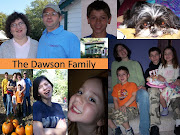Hands down, this was my favorite chapter. I even read most of the Geek Squad story twice; the first time to myself and the second time out loud to my husband. We got to have some laughs over the Geek Squad job titles, but the deeper impact has been driven home to me as a customer. I purchased a computer from one of their competitors two years ago. I have been having issues with it for the last several months. I took it to the store where I purchased it, as they have a service desk (I use that term loosely). They have had the computer three times and it still has the original problem. Even before reading this chapter, it occurred to me that I could call the Geek Squad to fix the problem. They have made a name for themselves by being really good at what they do, and they can obviously laugh at themselves. In my mind, that goes a long way!
Best Buy's leadership was smart in teaming with Geek Squad. Best Buy was notorious for having sales people who knew nothing about the products they sold, and getting them repaired was worse. I have my own experience there, as well, but that's for another day. The point is that Best Buy recognized a deficiency and collaborated outside themselves to challenge and overcome it. Isn't that the whole point of the new collaborative environment?
There were lots of ahas in this chapter, but one that really stuck out is a comment that we should look for consultancy to be the dominant contractual model for work in the near future. This is something that I have been considering myself for some time, and the current corporate environment is a scary place to be. It is going to become more of a necessity that people have transferable skills. Since many companies are reducing staff, consultants have more opportunities to provide value without being paid employees.
Subscribe to:
Post Comments (Atom)







No comments:
Post a Comment